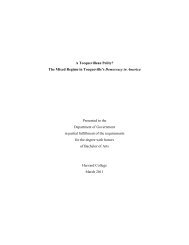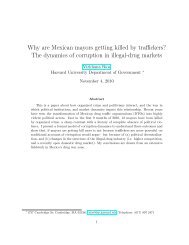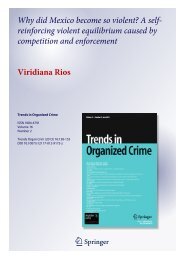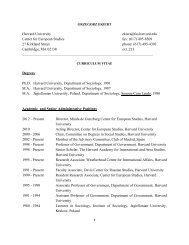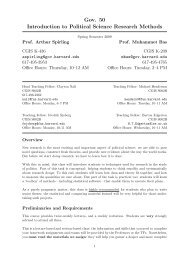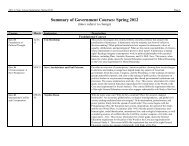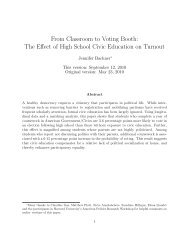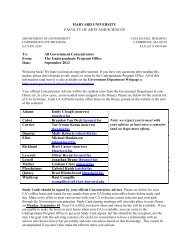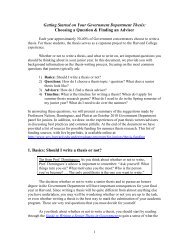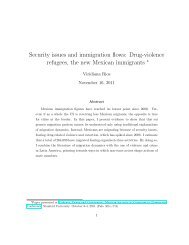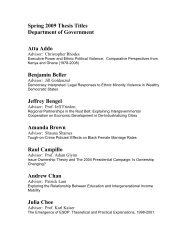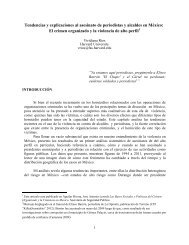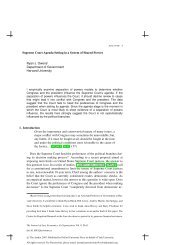1 Harvard University Political Theory Colloquium For 11 March 2010 ...
1 Harvard University Political Theory Colloquium For 11 March 2010 ...
1 Harvard University Political Theory Colloquium For 11 March 2010 ...
You also want an ePaper? Increase the reach of your titles
YUMPU automatically turns print PDFs into web optimized ePapers that Google loves.
19 <br />
resolution to the aporia, which would (if recalled) have blocked the deterioration of the<br />
measure doctrine into a justification for sophistry. Knowledge is inherently such as to<br />
exercise rule. The rule of pleasure can arise only if the rule of knowledge is absent: the<br />
former is not a cause, but a consequence, of the latter’s absence.<br />
This interpretation is arguably even voiced by Socrates in the sequel to the<br />
agreement on the measure doctrine, when he remarks: ‘Being overcome (to hêttô) is<br />
nothing other than ignorance (amathia), nor is governing oneself (kreittô heautou)<br />
anything other than wisdom (sophia)’ (358c1-3, my trans.: Lombardo & Bell inexact).<br />
This is most often read as a mere restatement of the measure doctrine, as if it were stating<br />
that what the many have referred to as ‘being overcome by’ and ‘being governed by’<br />
(picking up ‘their’ usage of hettômenous and kratoumenous, 352e1-2, my trans.) pain,<br />
pleasure, etc., is merely to be equated with the measure doctrine’s definition of<br />
ignorance. But the statement can also be read with a different argumentative force.<br />
Rather than reducing ‘being overcome’ and ‘governing oneself’ to conventional<br />
understandings of knowledge, Socrates is here expanding our understanding of<br />
knowledge to include its ineliminable role in governing oneself. ‘Wisdom’ is not merely<br />
something to be possessed, stuffed into the soul. Rather it consists precisely in ‘governing<br />
oneself’ by exercising the virtues, and in particular the virtue of self-control. This<br />
formulation is very close to that used for the virtue of sôphrosunê in other dialogues, the<br />
Alcibiades, Gorgias, and Laws among them, though this observation is here a placeholder<br />
for a full discussion of those passages and their relevance. 19<br />
We may infer that the establishment of the rule of knowledge is not something<br />
which the teaching of the sophists can establish. Knowledge is not something to be<br />
transmitted by a teacher but rather a capacity for deliberation and self-governance – for<br />
practical agency along the lines of Moran and McGeer -- to be cultivated in one’s own<br />
soul. Such cultivation involves the cultivation and exercise of the virtues and in<br />
particular of the virtue of temperance or self-control. It is the significance of knowledge<br />
as inherently executive on which Socrates and Protagoras had originally seemed to agree,<br />
but which the subsequent elaboration of the measure doctrine in its slide toward sophistry<br />
elides.



